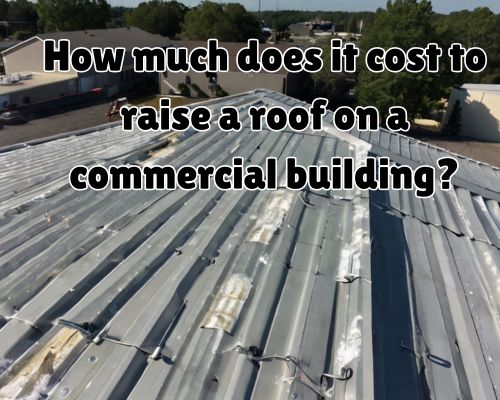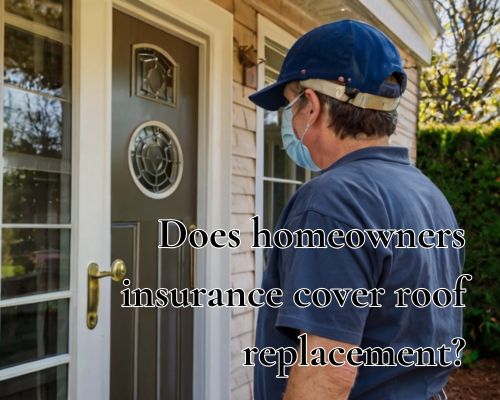How Much Does It Cost to Raise a Roof on a Commercial Building in New Jersey?
How Much Does It Cost to Raise a Roof on a Commercial Building in New Jersey?
Raising the roof on a commercial building in New Jersey is a significant construction project that requires careful planning, budgeting, and compliance with local regulations. Whether you need additional vertical space for storage, enhanced aesthetics, or structural reinforcements, the cost of this project depends on various factors, including labor, materials, and permits. This article explores the costs associated with raising a commercial roof, what influences these expenses, and essential considerations for businesses in New Jersey.

Factors Affecting the Cost of Raising a Roof on a Commercial Building
Several factors contribute to the overall cost of raising a roof on a commercial property. Understanding these elements can help business owners budget accordingly.
1. Building Size and Roof Type
- Larger buildings with expansive roofs will naturally require more materials and labor, increasing costs.
- The existing roof type (flat, gabled, or sloped) affects structural modifications, which can impact pricing.
2. Structural Reinforcement Needs
- Raising a roof often requires reinforcing the existing framework to support additional weight.
- Structural engineers may need to assess the building’s foundation to ensure it can sustain modifications.
3. Material Costs
- Common roofing materials include metal, asphalt shingles, and TPO (thermoplastic polyolefin) membranes for flat roofs.
- Costs fluctuate based on supply chain dynamics and material quality.
4. Labor and Contractor Fees
- Labor costs in New Jersey range from $50 to $150 per hour, depending on the complexity of the job and contractor expertise.
- Hiring a reputable roofing contractor like CJ Commercial Roofing NJ ensures compliance with state building codes and quality workmanship.
5. Permit and Zoning Regulations
- Local municipalities in New Jersey require permits for roof modifications, which can cost between $1,000 and $5,000.
- Businesses must adhere to local zoning laws, which can impact project feasibility.
6. Timeframe and Project Complexity
- The timeline for raising a commercial roof varies based on weather conditions and structural challenges.
- Delays due to material shortages or unforeseen structural issues can increase costs.
Cost Breakdown for Raising a Roof in New Jersey
While costs vary depending on the specifics of the project, here’s a general breakdown:
| Expense Category | Estimated Cost Range |
|---|---|
| Structural Engineering | $3,000 – $10,000 |
| Permits & Inspections | $1,000 – $5,000 |
| Labor Costs | $50 – $150 per hour |
| Roofing Materials | $10 – $30 per sq. foot |
| Additional Reinforcements | $5,000 – $20,000 |
| Total Estimated Cost | $50,000 – $250,000+ |
The final cost will depend on the size and complexity of the roof-raising project.
Location-Specific Considerations in New Jersey
1. Climate and Weather Impact
- New Jersey experiences cold winters and humid summers, which can affect material choices and labor schedules.
- Choosing weather-resistant materials is essential for durability and longevity.
2. Local Building Codes
- Compliance with New Jersey Uniform Construction Code (UCC) is mandatory.
- Local ordinances in cities like Newark, Jersey City, and Trenton may have additional requirements.
3. Availability of Skilled Contractors
- New Jersey has a competitive construction industry, with experienced roofing specialists available in cities like Edison, Camden, and Paterson.
- Obtaining multiple quotes from licensed contractors ensures cost-effectiveness.
Is Raising a Roof a Cost-Effective Investment?
Raising the roof on a commercial building can offer multiple long-term benefits, including:
- Increased property value and usable space.
- Enhanced energy efficiency with modern insulation.
- Improved aesthetics and branding for businesses.
However, before investing, businesses should conduct a thorough cost-benefit analysis and consult with a professional contractor like CJ Commercial Roofing NJ to determine feasibility.
Conclusion
The cost to raise a roof on a commercial building in New Jersey varies significantly based on structural needs, material choices, and local regulations. With estimates ranging between $50,000 and $250,000+, business owners should carefully evaluate the financial and operational impact of such a project. Consulting experienced roofing contractors and understanding New Jersey’s building codes will ensure a smooth and legally compliant construction process.
For the best results, always work with licensed professionals and obtain multiple quotes before proceeding with your project. If you’re considering raising a roof on your commercial property, reach out to local New Jersey contractors today for a comprehensive assessment.
